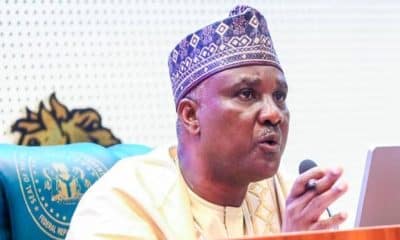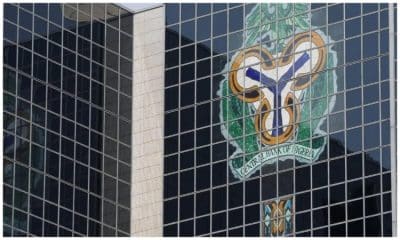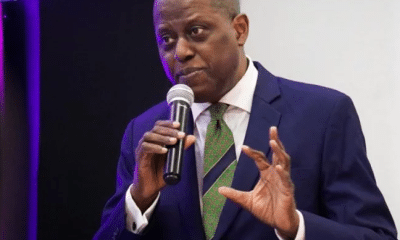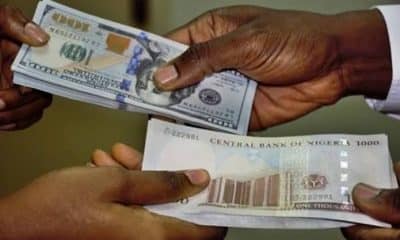Business
CBN Retains Monetary Policy Rate At 14%
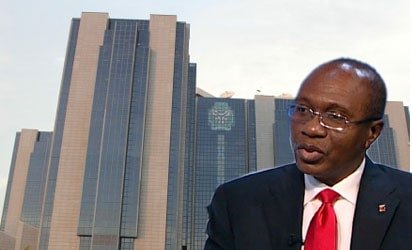
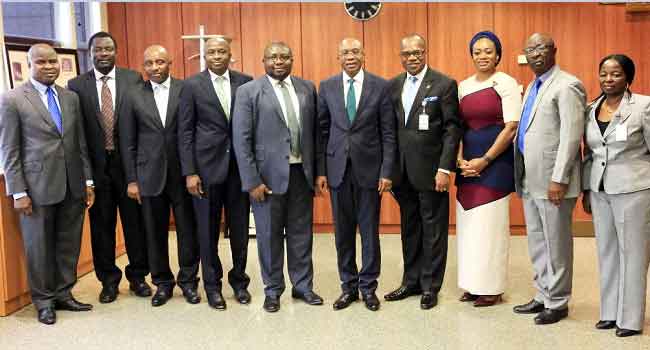
CBN retained Monetary Policy Rate at 14%
CBN advises government to save more from oil proceeds
The Central Bank of Nigeria (CBN) has retained the Monetary Policy Rate at 14 % following the maiden meeting of the re-constituted Monetary Policy Committee (MPC), in Abuja.
Briefing journalists on the out-come of the meeting, CBN Governor, Mr. Godwin Emefiele announced that all other parameters were equally retained.
The Governor said that the decision to retain the rate was in consideration of the fact that MPC members felt that 14 per cent was tight enough to withstand inflationary pressures and that loosening might lead to rise in consumer prices and exchange rate pressures through increased importation.
His words, “The Committee noted that at 14 per cent, the policy rate was tight enough to rein-in current inflationary pressures. The Committee, therefore, reaffirmed its commitment to price stability conducive to sustainable and inclusive growth.
“Committee is of the view that loosening would strengthen the outlook for growth by stimulating domestic aggregate demand through reduced cost of borrowing. This may, however, lead to a rise in consumer prices, generating exchange rate pressures on the currency in the process.
“The Committee also believes that loosening could worsen the current account balance through increased importation. On the argument to hold, the Committee believes that key macroeconomic variables have continued to evolve in a positive direction in line with the current stance of macroeconomic policy and should be allowed more time to fully manifest.”
With a foreign reserve of $46.699 billion dollars, he said that the nation’s economy has been placed on a stronger footing to accelerate the already achieve positive growth, after a period of recession.
On the outlook, the CBN boss said, “Forecasts of key macroeconomic indicators give a positive outlook for the Nigerian economy in 2018. This is predicated on the quick passage and effective implementation of the 2018 budget, improved security, foreign exchange market stability as well as favourable crude oil prices.
“On the downside, the Committee noted the potential impact of the 2019 election-related spending, against the weak backdrop of tax revenue efforts, herdsmen related violence and rising yields in the advanced economies. Indications in the US and the UK point to higher interest rates in the short to medium term.”
Mr. Emefiele said that in the face of growing spending of oil revenue, there was need for the federal government and there other two tiers of government to free the growth in aggregate expenditure and design means of saving funds against future oil price volatilities.
He said, “The Committee noted that the recovery of the economy was strengthening in view of the return to growth of the services sector. As the fiscal sector continues to settle its outstanding liabilities, it reduces its domestic debt profile, thus increasing the liquidity of the banking system.”
“However, the MPC observed increasing monetization of oil proceeds as evidenced in the growing FAAC (Federation Accounts Allocation Committee) distribution relative to the 2017 levels of disbursements.
“Committee urged the government to initiate a strong stabilization programme and to free growth in its aggregate expenditure and FAAC distributions in order to create savings badly needed to stabilize the economy against future oil price related shocks.”
The committee urged quick passage of the 2018 Appropriation Bill by the National Assembly so as to keep fiscal policy on track and to deliver the urgently needed relieves in terms of employment and growth.



